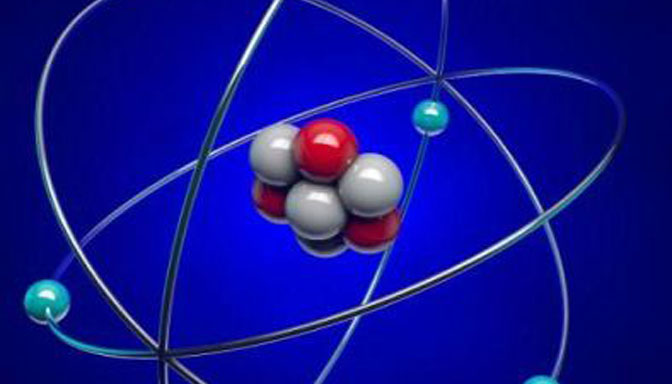
The research in this branch is carried out in the following fields:
1. Magnetism, Ferroelectrics, Superconductors, Semiconductors and Multiferroics
Prof. Dr. Md. Feroz Alam Khan, Prof. Dr. A. K. M. Akther Hossain, Dr. Muhammad Samir Ullah, Dr. Mohammad Khurshed Alam and Dr. Md. Azizar Rahman are working in this group. Magnetic, ferroelectric and multiferroic materials are grown in the form of nanocrystalline, polycrystalline and thin films, and thoroughly investigated to explore their various properties. This group has well equipped experimental setup to characterize the ac magnetic properties (initial permeability, magnetic loss factor as a function of frequency up to 120 MHz and temperature), transport properties (impedance as a function of frequency up to 120MHz and temperature, dielectric constants, and dielectric loss factor) and magnetoelectric voltage coefficient. This group is also preparing manganite materials using solid-state reaction technique and investigating their magnetoresistance and magnetocaloric effect.
This group also studies the properties of high Tc, low Tc, and unconventional chiral noncentrosymetric superconductors. The physical properties of low Tc and unconventional superconductors are computed and investigated by ab-initio density functional theory (DFT).
Moreover, this group is working on oxide semiconductors, diluted magnetic semiconductors (DMS), metallic alloys and metal halides. Vertically aligned semiconducting/metallic nanowires/nanorods are grown using vapour phase transport method. The structural, transport properties and luminescence as a function of photon energy and temperature of these materials are studied. This group has further intension to control the dimension of nanowire/nanorod, and optimize their properties for designing optoelectronic devices (LED and LASER). This group has active collaboration with Osaka University, Japan and University of Technology Sydney, Australia.
2. Polymer Physics
Prof. Dr. Md. Forhad Mina, Dr. Mohammad Jellur Rahman, Dr. Parvin Sultana and Mr. Md. Mehdi Masud are working with soft condensed matters, especially with polymeric materials. Currently, this group is preparing polymer thin films by plasma polymerization technique and characterizing them by various methods. Besides, this group is processing and developing noble polymer materials such as polymer blends and composites by extrusion molding, injection molding, and hot-pressing methods. The structural, electrical, mechanical, micromechanical, thermal, and surface morphological properties of these materials are characterized by various techniques. These research studies are undertaken considering the potential applications of the newly emerging properties of polymer blends and nanocomposites. This group has further intention to develop methods for polymer crystallization. In addition, they are also working on the synthesis and functionalization of carbon nanotubes and other nanoparticles, which are being incorporated into different synthetic and natural polymers to obtain technologically important nanocomposites. This group is also working on computational Condensed Matter Physics (DFT, RPA and BerkeleyGW) so that the computational results can be compared with the experimental results.
3. Crystal Growth and Thin Film
Prof. Dr. Jiban Podder, Prof. Dr. Md. Mostak Hossain, Dr. Muhammad Rakibul Islam, and Dr. Mehnaz Sharmin are working in this group. This group is engaged in studying the nucleation, growth kinetics and habit modification of some technologically important and highly transparent nonlinear optical (NLO) crystals from low-temperature solution growth technique. Materials with large NLO susceptibilities are of current interest in the area of harmonic generation and optical modulation.
This group is capable of the deposition of high-quality metal oxide thin films. Research interests are focused on exploring and understanding the physical properties of functional electronic materials and low dimensional nanostructured materials of wide bandgap oxide semiconductors for transparent electronic, energy-efficiency-related prospective optoelectronic devices and different sensor technologies. This group is studying the surface morphology, optical properties, electrical properties of thin films with an aim to develop low cost and efficient gas sensing devices
4. Nanotechnology
Prof. Dr. Mohammed Abdul Basith and Dr. Muhammad Rakibul Islam are working on advanced materials and nanotechnology. This group involves synthesis, modeling, characterization, and manipulating properties of matter at the nanoscale. They are working on various research such as (i) Solar hydrogen production via water splitting using locally fabricated novel phot catalysts, (ii) Synthesis of rGO and MoS2 based nanocomposites and investigation of their photocatalytic and electrochemical properties for energy applications, (iii) Structural, dielectric, ferroelectric and magnetic properties of multiferroic nanomaterials, (iv) Synthesis of inorganic as well as metal halide perovskites by rapid hot-injection technique and investigation of their multiferroic and photocatalytic properties, and (v) DFT based simulations with Hubbard U corrections on the structural, optical, electronic and magnetic properties of perovskite materials.
This group is also focused on the synthesis of low-dimensional nanostructured materials (nanoparticles and 2D materials), eco-friendly polymer nanocomposite using carbon nanotube, graphene nanofillers, nanostructured supercapacitors for energy storage, and photocatalysis of nanostructured materials.
